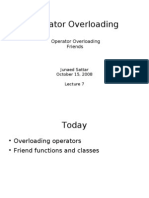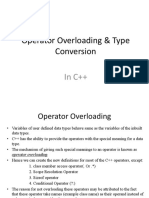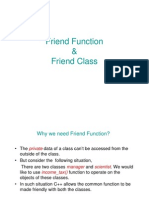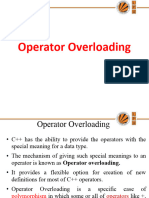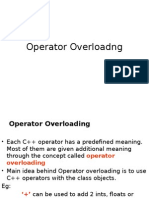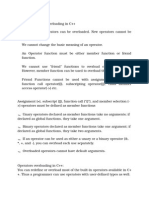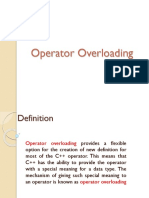0% found this document useful (0 votes)
6 views3 pagesC++ Unit 1 Answers
The document provides important questions and answers related to C++ operator overloading and friend functions. It covers definitions, rules, examples of overloading operators, and comparisons between friend functions and member functions. Additionally, it discusses the merits and demerits of friend functions and provides code snippets for practical understanding.
Uploaded by
Pratik BorudeCopyright
© © All Rights Reserved
We take content rights seriously. If you suspect this is your content, claim it here.
Available Formats
Download as PDF, TXT or read online on Scribd
0% found this document useful (0 votes)
6 views3 pagesC++ Unit 1 Answers
The document provides important questions and answers related to C++ operator overloading and friend functions. It covers definitions, rules, examples of overloading operators, and comparisons between friend functions and member functions. Additionally, it discusses the merits and demerits of friend functions and provides code snippets for practical understanding.
Uploaded by
Pratik BorudeCopyright
© © All Rights Reserved
We take content rights seriously. If you suspect this is your content, claim it here.
Available Formats
Download as PDF, TXT or read online on Scribd
/ 3



















